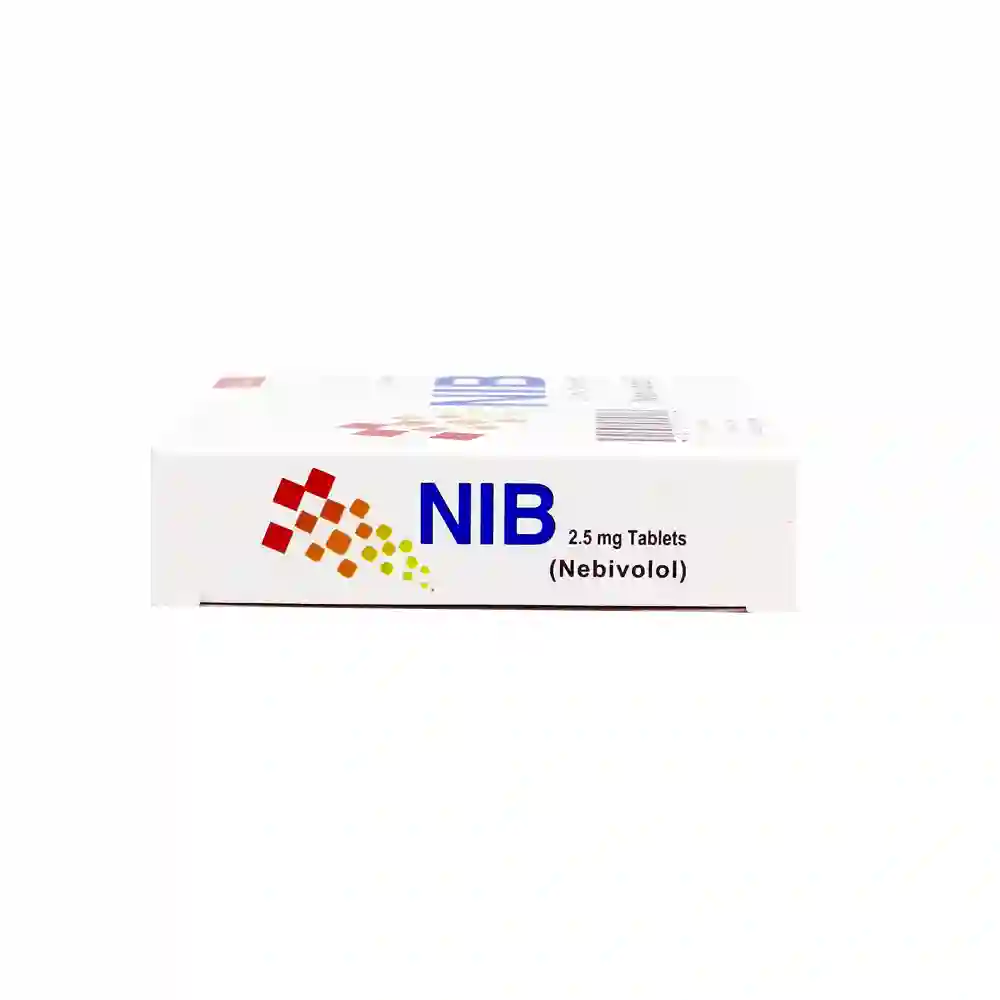Nebivolol is a common sight in Pakistani pharmacies, from Karachi’s crowded medical stores to clinics in Faisalabad, often prescribed to manage high blood pressure or ease heart strain. It’s a selective beta-blocker that works gently on the heart. This profile covers its essentials—how it functions, its uses, side effects, and doctor insights—based on local standards like those from the Pakistan Medical and Dental Council (PMDC). It’s straightforward info to understand, not a cue to use without a doctor’s advice.
Basic Product Details
- Form and Strength: 2.5 mg tablets, taken orally.
- Packaging: Strips of 10 or 14 tablets, sealed for Pakistan’s humid climate.
- Pricing: Roughly PKR 10-20 per tablet; a 10-tablet strip costs about PKR 100-200, depending on the pharmacy or brand.
- Brands in Pakistan: Bystolic, Nebivol, or PMDC-approved generics.
Ingredients
- Active Ingredient: Nebivolol (2.5 mg, a beta-1 adrenergic receptor blocker).
- Excipients: May include lactose, cellulose, or magnesium stearate (check packaging for specifics).
Drug Class
Beta-Blocker (selective beta-1 adrenergic receptor antagonist).
How It Functions
Nebivolol blocks beta-1 receptors in the heart, stopping adrenaline and noradrenaline from speeding up heart rate or tightening blood vessels. This lowers heart workload, reduces blood pressure, and improves blood flow by relaxing arteries. Its selectivity for beta-1 over beta-2 receptors means fewer lung-related side effects compared to older beta-blockers. In Pakistan’s clinics, it’s valued for steady blood pressure control and heart support, especially for those with busy lifestyles or heart failure.
Common Applications
From local medical practices, nebivolol is linked to:
- Managing high blood pressure (hypertension).
- Treating heart failure to improve heart function and exercise ability.
- Preventing chest pain (angina) by easing heart strain.
- Reducing risks of stroke or heart attack in high-risk patients.
- Supporting overall cardiovascular health, often with other meds.
Dosage Form
Tablet (2.5 mg), swallowed whole with water.
Potential Side Effects
Common issues, based on local reports, include:
- Dizziness or lightheadedness.
- Fatigue or weakness.
- Headache or nausea.
- Slow heart rate (bradycardia).
- Cold hands/feet or trouble sleeping.
- Diarrhea or stomach upset.
Seek immediate help for severe symptoms like swelling or breathing issues.
Key Warnings and Precautions
PMDC-aligned guidelines note:
- Allergies: Avoid if allergic to nebivolol or other beta-blockers.
- Heart Conditions: Use cautiously with slow heart rate, heart block, or severe heart failure; needs monitoring.
- Lung Issues: Caution in asthma or COPD due to possible breathing effects.
- Diabetes: May mask low blood sugar signs; monitor glucose closely.
- Pregnancy/Breastfeeding: Avoid unless essential—consult a doctor.
- Stopping: Taper off gradually to avoid withdrawal issues.
- Driving: Skip if dizzy or fatigued.
Regular heart rate, blood pressure, and kidney tests are advised.
When It’s Not Suitable (Contraindications)
Avoid if you have:
- Allergy to nebivolol or beta-blockers.
- Severe liver disease.
- Severe heart failure, bradycardia, or sick sinus syndrome.
- Low blood pressure or severe circulatory issues (e.g., Raynaud’s syndrome).
- Severe asthma/COPD or untreated pheochromocytoma.
Drug Interactions
May interact with:
- Other blood pressure meds (e.g., ACE inhibitors, diuretics), risking low pressure.
- CYP2D6 drugs (e.g., flecainide, metoprolol), increasing levels.
- Clonidine or digoxin, causing severe low heart rate or pressure.
- Insulin/oral antidiabetics, masking hypoglycemia signs.
- Cyclosporine or QT-prolonging drugs (e.g., antipsychotics), needing monitoring.
Food Interactions
- Take with or without food, but avoid high-fat meals to prevent delayed absorption.
- Limit alcohol; it can worsen dizziness or drowsiness.
- Avoid high-sodium foods (e.g., salty snacks) to support blood pressure control.
- Reduce caffeine, as it may counter blood pressure effects.
- Avoid grapefruit juice, which can raise nebivolol levels.
In Case of Overdose
Symptoms like severe dizziness, fainting, or slow heart rate need urgent ER care. Treatment includes monitoring vitals and supportive meds to stabilize heart rate or pressure.
Missed Dose
Take as soon as remembered, unless near the next dose. Skip it then, and don’t double up. Consult your doctor if unsure.
Storage and Disposal
Store tablets at room temperature (20-25°C) in a cool, dry place (e.g., a cabinet, not a bathroom), away from light, moisture, and kids. Dispose of expired tablets via pharmacy drop-off, not by flushing.
Quick Tips
- Take at the same time daily for steady effects.
- Monitor blood pressure regularly.
- Avoid sudden stops—taper with doctor’s guidance.
- Inform your doctor about all meds to avoid clashes.
Doctor Review
Cardiologists in Pakistan, from Karachi to Islamabad, view nebivolol as a solid choice for hypertension and heart failure, easing heart strain with fewer lung side effects than older beta-blockers, but they stress regular heart and kidney checks, especially for diabetics.
Laboratory Screening
To monitor effects and health:
- Blood Pressure/Heart Rate: Regular checks for control.
- Blood Tests: Kidney function (creatinine, eGFR), glucose (for diabetics), complete blood count.
- ECG: If heart rhythm issues are suspected.
Disclaimer: This is product information only, not a prescription or diagnosis. Consult a qualified Pakistani doctor before using nebivolol to ensure it’s safe. Seek immediate care for severe symptoms like dizziness, slow heart rate, or breathing issues.









Reviews
There are no reviews yet.